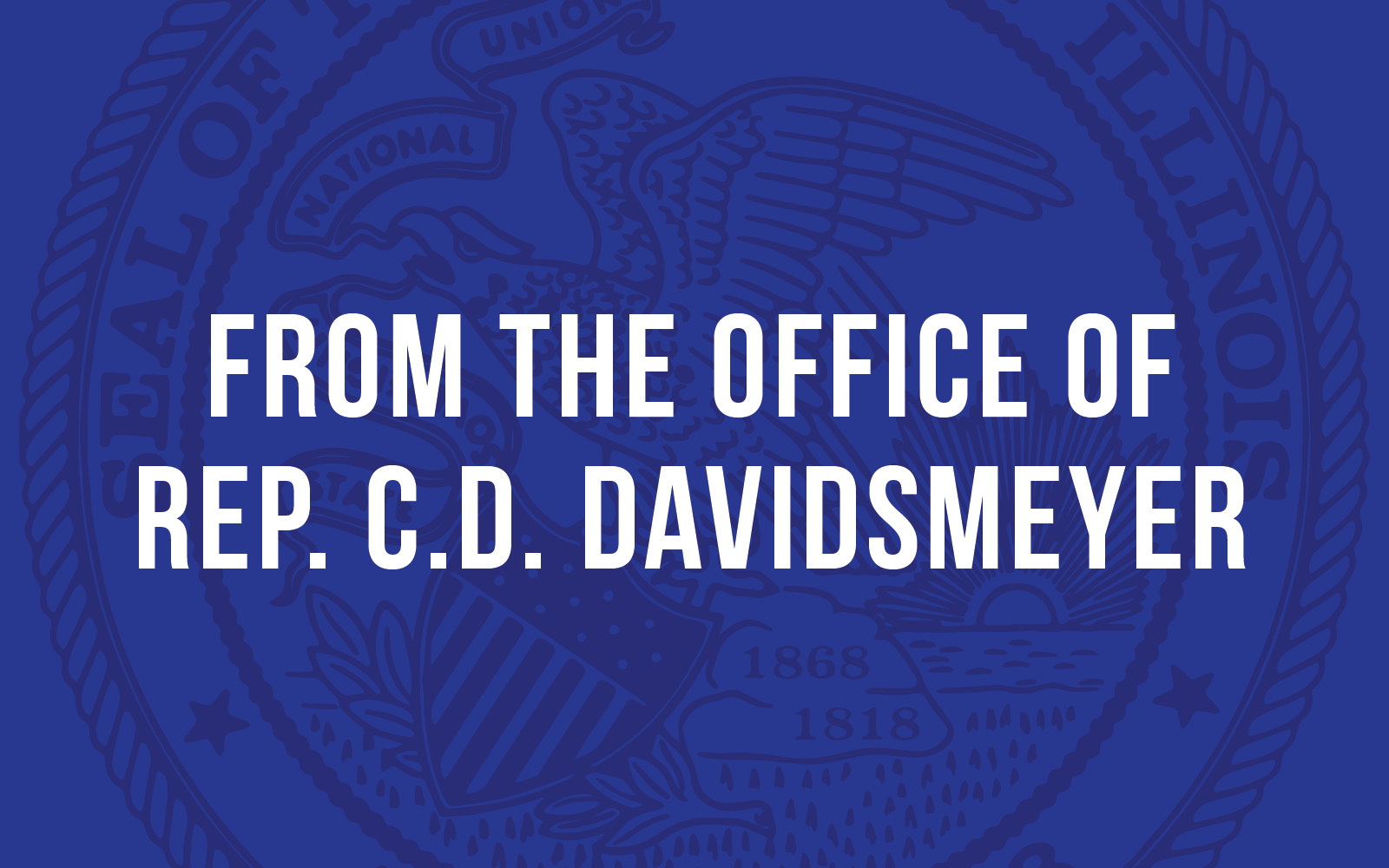Springfield, IL… Assistant Republican Leader C.D. Davidsmeyer (R-Jacksonville) released the following statement after Illinois House Democrats voted to accept Governor Pritzker’s amendatory veto of Senate Bill 539, a watered-down ethics bill that caused Legislative Inspector General Carol Pope to resign her position.
“Today, Democrats voted for a so-called “ethics reform” bill that will reduce oversight of political hiring and takes away authority from the Legislative Inspector General to investigate allegations of corruption against elected officials in Springfield,” Rep. Davidsmeyer said. “After all of the recent scandals in one of the most corrupt states in the nation, the people of Illinois deserve better. The political insiders and party bosses of the corrupt Chicago machine have driven our state into the ground for their own benefit. We need real, meaningful ethics reform in Illinois, not this watered-down half-measure passed by the Democrat supermajority.”
“The governor’s amendatory veto included technical changes that would end oversight from the federal Shakman Decree, allowing the governor to expand patronage hiring of political insiders in state government. It did nothing to strengthen accountability or put an end to the culture of corruption in Illinois.”
Legislative Inspector General Carol Pope sent her letter of resignation to the Legislative Ethics Commission in July, telling lawmakers that their failure to pass meaningful ethics reform shows “true ethics reform is not a priority.”
Pope testified earlier this year before the House and Senate ethics committees about the need to be able to issue subpoenas without the approval of the Legislative Ethics Commission, publishing reports about investigations and creating a ninth position on the ethics commission for a nonpartisan member who is not a state lawmaker.
“None of these reforms were adopted,” Pope wrote in her resignation letter, arguing that her office’s power was actually restricted under the provisions of Senate Bill 539, by requiring a complaint to be filed before she can launch an investigation.
